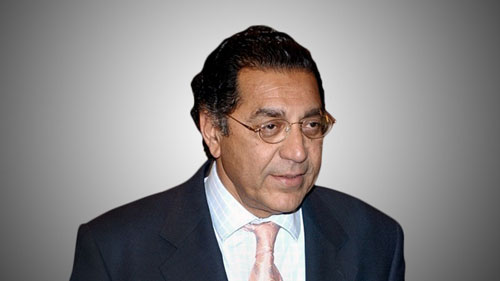The legitimate struggle of the Kashmiri people for their recognized right to self-determination cannot be legally or morally equated with terrorism”: Ambassador Munir Akram, Permanent Representative of Pakistan to the UN, says a press release received on Friday from New York.
“India has sought for decades, and particularly since 9/11, to portray the Kashmiri freedom struggle as “terrorism”. As Nelson Mandela observed, colonial powers have often depicted liberation struggles as terrorism.
The legitimate struggle of the Kashmiri people for their recognized right to self-determination cannot be legally or morally equated with terrorism”. said Ambassador Munir Akram, Permanent Representative of Pakistan to the UN at the webinar today commemorating Kashmir Black Day Today, the Permanent Mission of Pakistan to United Nations (New York) organized a webinar titled: ‘Freedom Struggle of Kashmiris for Right to Self-Determination” to mark the 75 years of Indian illegal occupation and oppression in Jammu and Kashmir.
The webinar was moderated by Ambassador Munir Akram, Permanent Representative of Pakistan to United Nations, where he delivered his opening and concluding remarks.
In his opening remarks, Ambassador Akram recalled the illegal occupation of Jammu and Kashmir saying that “in the aftermath of the Kashmir insurgency and the first Pakistan-India war over Kashmir, the Security Council decided that the “Final disposition” of the State of Jammu and Kashmir would be made through a plebiscite under UN auspices.
India accepted the decision but has since blocked its implementation through force and fraud”. Briefing the participants, Ambassador Akram noted that “the Kashmiri resistance to Indian rule has been consistent and courageous. After the December 1989 massacre in Srinagar, the Kashmiri people rose in popular revolt. India’s oppressive response killed over 100,000 Kashmiris.”
“This massive Indian occupying force has perpetrated a vicious campaign of repressive actions, including extra-judicial killings of innocent Kashmiris in fake encounters; custodial killings and “cordon and search” operations; abduction and enforced disappearances of 15,000 young Kashmiri boys; rape and sexual violence; incarceration of the entire Kashmiri leadership; collective punishments, with the destruction and burning of entire villages and urban neighbourhoods.: he said.
He underscored that there is an imminent threat of genocide of Kashmiris. The brutal campaign of oppression is driven by the ideology of “Hindutva” which asserts the religious and ethnic supremacy of Hindus and hate against Muslims”. “the occupation authorities have imposed complete physical lockdown and a total information blackout.
The state machinery does not allow any international visits or verification of the ground situation in IIOJK. To suppress the voice of Kashmiri people, Indian authorities have employed censorship and surveillance as tools for decades in Kashmir” he said further.
Ambassador Akram noted that “since August 2019, this information control has been fully institutionalized. Journalists, lawyers, and human rights defenders are routinely incarcerated, beaten, humiliated, harassed and even accused of “terrorism” for reporting the human rights violations in IIOJK”.
“The recent sham trial and conviction of Mr. Yasin Malik on concocted charges is the most recent example of India’s attempts to punish Kashmiri leaders seeking freedom by peaceful means” he told.
The event featured distinguished panelists including Ms. Victoria Schofield, a historian and commentator on international affairs, Mr. Salman Khan, a human rights activist, Dr. Ershad Mahmud, journalist, analyst, historian and expert on Kashmir Affairs, Dr. Mubeen Shah, the former President of Kashmir Chamber of Commerce and Industry, Mr. Rasool Bakhsh Raees,
Professor of Political Science in the Department of Humanities and Social Sciences, Lahore University of Management Sciences, Ms. Shaista Shafi, a Kashmiri activist who shared her experience of living under the Indian Occupation, Mr. Lars Rise, a Parliamentarian, Mr. Lars advocated for the right of self-determination of the people of Jammu and Kashmir, Mr. Abdel Hamid Siyam, Professor of Political Science and Middle Eastern Studies at Rutgers, the State University of New Jersey, Dr. Shahida Wizarat. Dr. Wizarat is currently serving as Dean, College of Economics and Social Development at the Institute of Business Management, Mr. Hassan Khan, a diplomatic correspondent, among others. —INP










